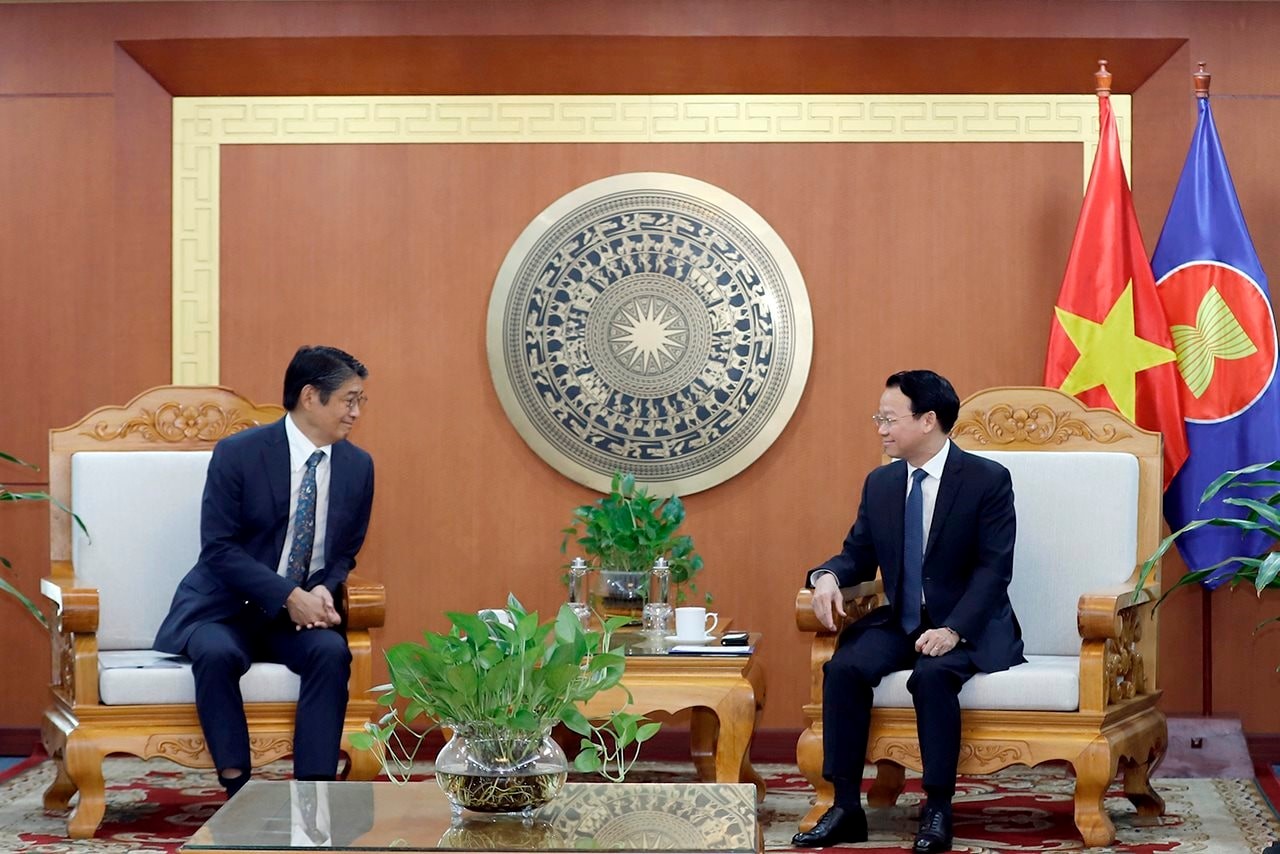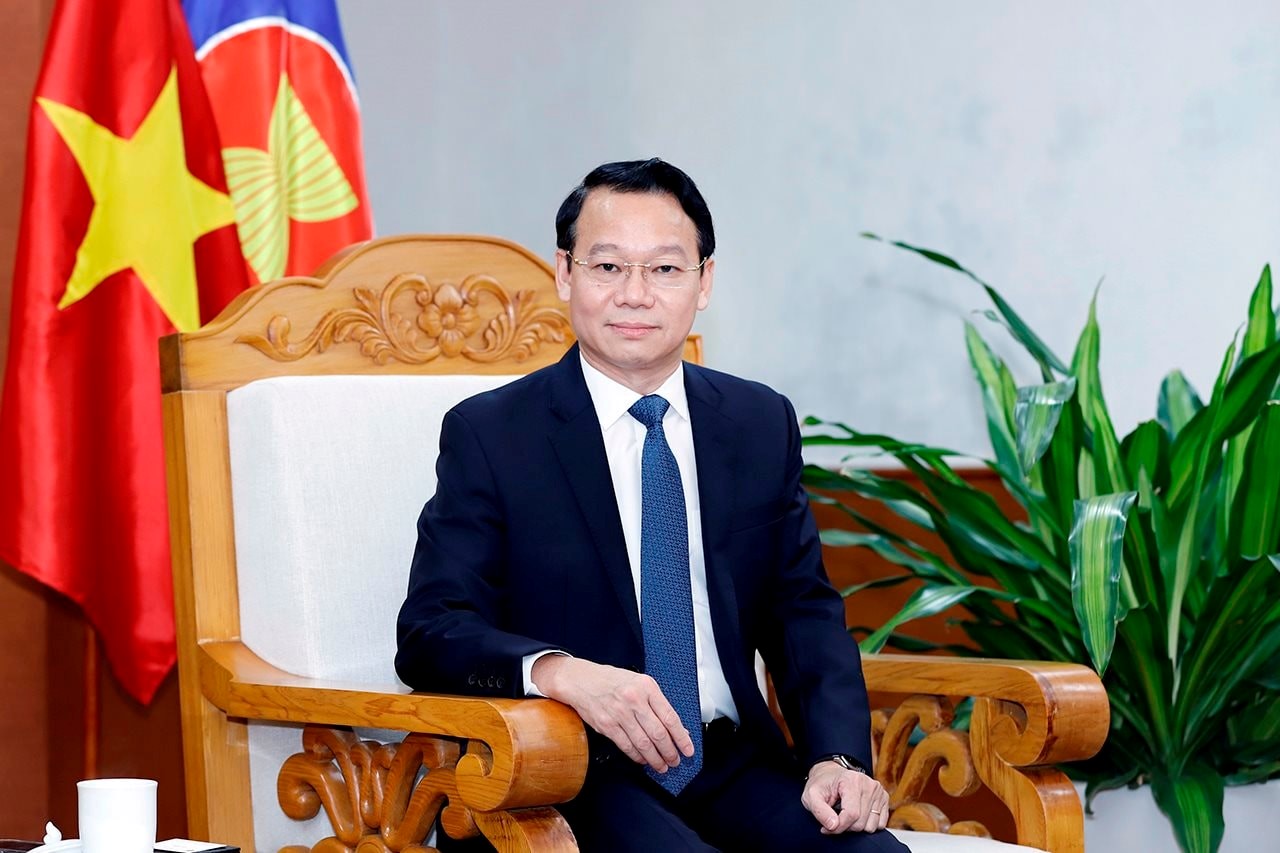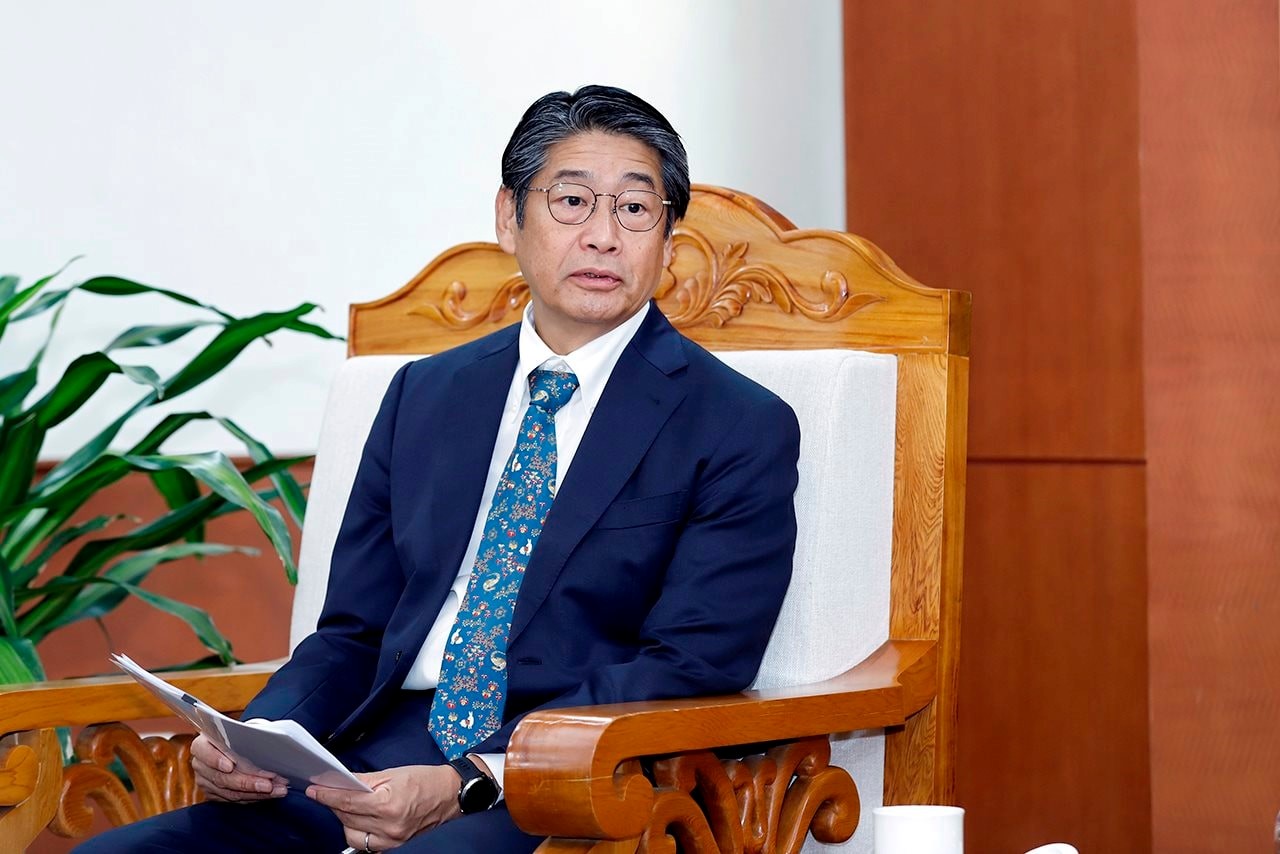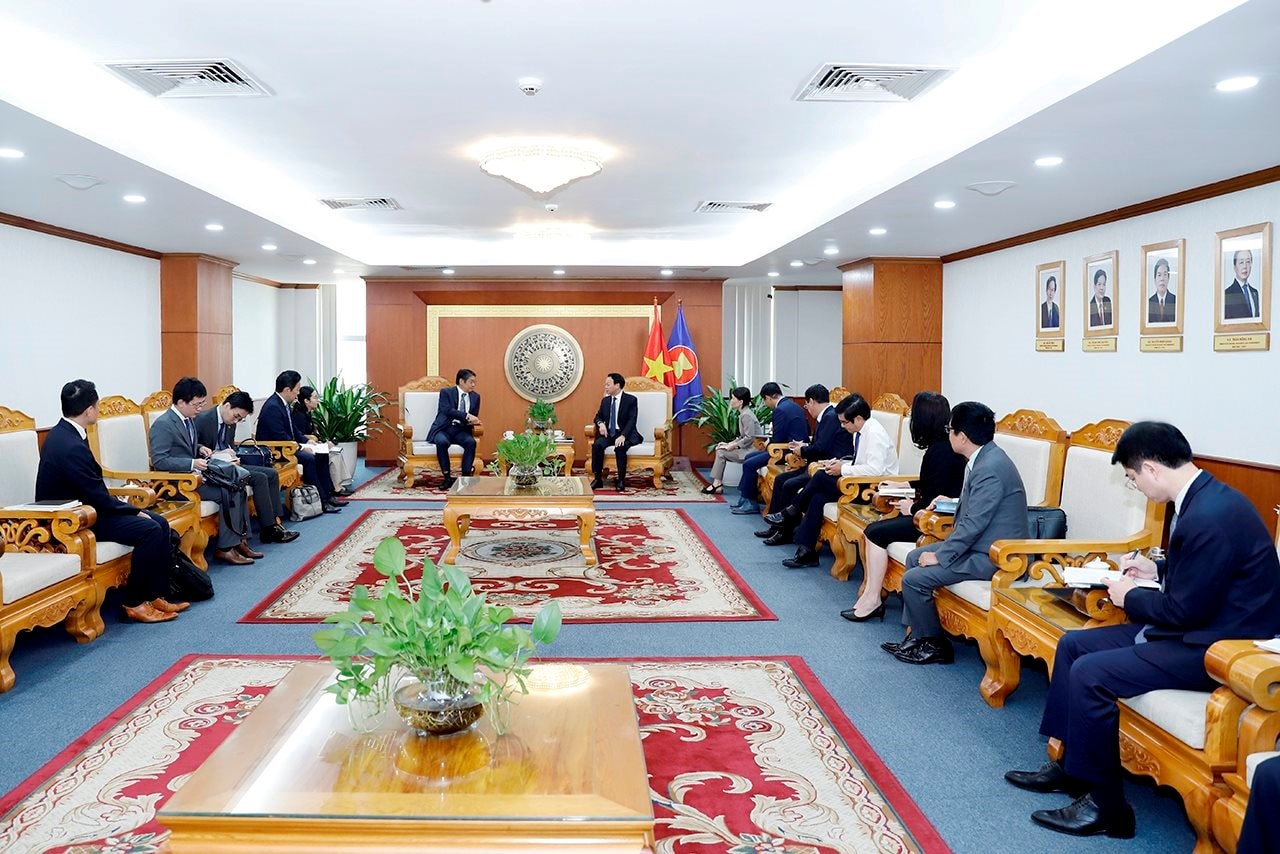Minister of Natural Resources and Environment, Do Duc Duy and Ambassador Extraordinary and Plenipotentiary of Japan to Viet Nam, Ito Naoki affirmed to further strengthening cooperation in areas where Japan has strengths and the Ministry of Natural Resources and Environment prioritizes implementation in the coming time.
On the morning of October 4th, Minister of Natural Resources and Environment Do Duc Duy hosted a meeting and worked with Mr. Ito Naoki, Ambassador Extraordinary and Plenipotentiary of Japan to Viet Nam.
At the meeting, Minister Do Duc Duy expressed his gratitude to the people and government of Japan for always accompanying, sharing and readily supporting Vietnam in overcoming difficulties and recovering from the aftermath of Typhoon Yagi, demonstrating the close friendship and mutual friendship between the two peoples of Viet Nam and Japan.
 Minister of Natural Resources and Environment, Do Duc Duy received and worked with Mr. Ito Naoki, Ambassador Extraordinary and Plenipotentiary of Japan to Viet Nam
Minister of Natural Resources and Environment, Do Duc Duy received and worked with Mr. Ito Naoki, Ambassador Extraordinary and Plenipotentiary of Japan to Viet Nam
Ambassador Ito Naoki stated that with the strong cooperative relationship between the two countries, the Japanese Government has been and will continue to support Viet Nam in overcoming the consequences caused by Typhoon Yagi through international programs and organizations.
Discussing cooperation programs between the governments of Japan and Viet Nam, Minister Do Duc Duy stated that Japan is one of the most trusted and effective partners of the Ministry of Natural Resources and Environment in many important areas: climate change, environment, circular economy, plastic pollution, scientific research, water resources, and many other areas.
 Minister Do Duc Duy stated that Japan is one of the trusted partners and has effectively cooperated with the Ministry of Natural Resources and Environment in many important areas.
Minister Do Duc Duy stated that Japan is one of the trusted partners and has effectively cooperated with the Ministry of Natural Resources and Environment in many important areas.
Based on that, Minister Do Duc Duy affirmed to futher continue to strengthen the cooperative relationship in the fields in which Japan has strengths and the Ministry prioritizes implementation in the coming time.
At the meeting, Minister Do Duc Duy and Ambassador Ito Naoki discussed the contents of the environment; climate change; the implementation of the Joint Crediting Mechanism (JCM); supporting Viet Nam in developing legal documents and specialized guidance documents related to waste management towards energy recovery in Viet Nam; at the same time, organizing training programs to approach Japanese management methods, recycling and energy recovery technologies; Through cooperation in the Strategic Program for ASEAN Climate and Environment (SPACE).
Minister Do Duc Duy and Ambassador Ito Naoki also discussed the content of the “Asia Zero Emission Community” Summit - AZEC. The two sides hoped that at the Summit, member countries participating in the AZEC framework would have a common voice as well as discuss specific cooperation plans in the coming time. Minister Do Duc Duy proposed that the Japanese Embassy discuss with the Japanese Ministry of Foreign Affairs the possibility of organizinga bilateral meeting between the Prime Ministers of the two countries to discuss common goals.
 Mr. Ito Naoki, Ambassador Extraordinary and Plenipotentiary of Japan to Viet Nam
Mr. Ito Naoki, Ambassador Extraordinary and Plenipotentiary of Japan to Viet Nam
In addition, the two sides discussed cooperation in investigation, assessment and exploration of strategic minerals.
Also at the working session, Minister Do Duc Duy said that by 2025, Viet Nam will issue a Decree on green credit and green development for energy conversion projects. The Decree is related to many agencies and ministries of Viet Nam, andthe Minister hoped for Japan's sharing and support to access financial resources, experience, and policies from Japan as well as international partners.
On this occasion, Minister Do Duc thanked Japanese partner agencies for supporting Viet Nam in general and the Ministry of Natural Resources and Environment in particular in a number of the Ministry's state management areas such as hydrometeorology, marine scientific research, circular economy, and plastic pollution.
 Overview of the working session on the morning of October 4th
Overview of the working session on the morning of October 4th
Ambassador Ito Naoki said that the Japanese Government is always ready to accompany Viet Nam in its sustainable development strategies. With a long tradition of cooperation between the Ministry and Japanese partners in the fields of environment, biodiversity, plastic waste, circular economy, etc.. Ambassador Ito Naoki hoped to together with Minister Do Duc Duy as a bridge to further promote cooperation in the field of environment between the two countries for sustainable development; enhancing the importance of environmental conservation and improvement for current and future generations.